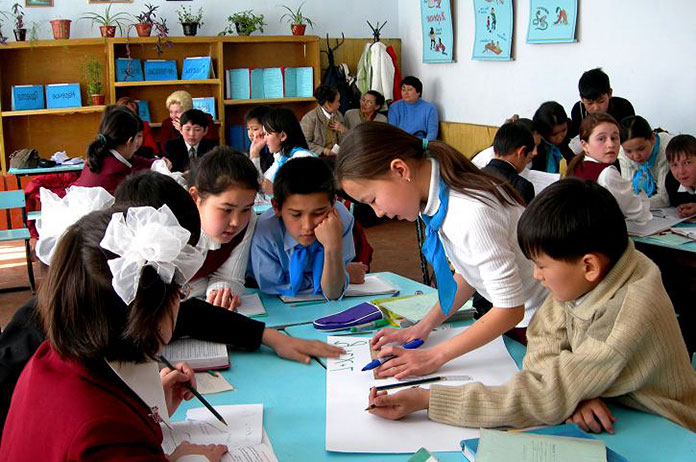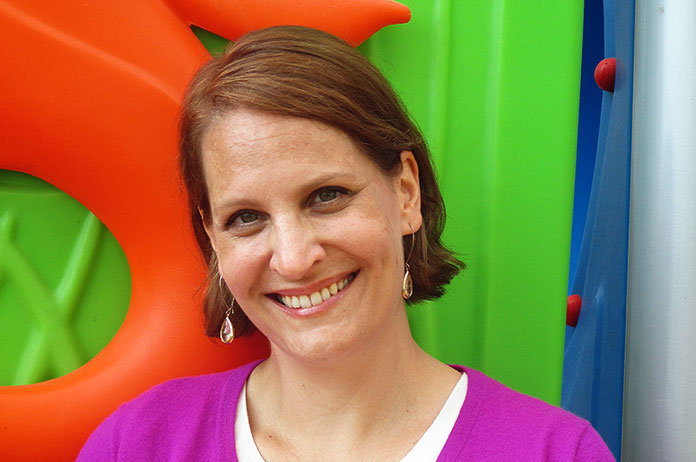Educating Your Children In The Kingdom

“Cambodia is fast becoming a country of choice for International educators, and schools are able to be very selective in who they recruit. This is an exciting time for education in Cambodia.” This is how Ian Hunt, the secondary school principal at Northbridge International School sums-up the education industry in the Kingdom.
Indeed, the educational offers available in Cambodia have been growing rapidly, and the country can now boast a wide and varied selection of educational centres. There is a school for every budget, from the modest Khmer international schools where children acquire a good grounding in English to top-tier academies accredited by the Western Association of Schools and Colleges that enable access to top universities around the world.
Teaching standards
Teaching standards vary considerably in Cambodia. Martin R. Tosh, the principal at ICS International School, says they are “on the whole, acceptable,” with some notorious exceptions that fall below minimum standards. “A shortage of well-qualified local and foreign teachers is apparent,” Tosh says.
Hunt, however, says despite this challenge, the quality of education has been improving in recent years. The change has been brought about by efforts at the Ministry of Education, Youth and Sport to provide Cambodian students with access to quality education, points out Tosh. Inspection procedures have improved, and the national examinations regulations have been revamped to ensure less cheating and to provide more accurate results.
Teaching standards are notably higher at leading international schools, which tend to employ specialized expatriate teachers brought over from overseas international schools. These teachers have ample experience teaching the programs and curriculum assigned to them. These schools offer internationally-accredited programs like the International Baccalaureate, A Levels, and the International General Certificate of Secondary Education (IGCSE). Several schools are also accredited by independent bodies like the Council of International Schools and WASC.
Cost of education
“The cost of education is not cheap but you are guaranteed a quality education leading to globally recognised qualifications and entrance to top universities,” says Hunt. To send your child to one of the top secondary education institutions in the country will cost between $5,000 to $19,000 per year, depending on their age.
There is often a registration and annual capital fee as well. Tertiary education is relatively inexpensive in the Kingdom, particularly when compared to American universities. Sreng Mao, Country Director of IDP Education, says Cambodian tertiary institutions offer an increasingly broad range of courses and improved facilities to cater to the widening range of skills graduates require. Tosh, however, advises expats to seek undergraduate degrees in their country of origin, as most universities in Cambodia teach in the local language.
International schools

“An international school gives your child access to the world every day in their own classroom. Children from many different countries and cultures are working together and learning from each other. The richness that the diversity of students and cultures brings cannot be found in any textbook,” says Christine Bzdel, principal at the Canadian International School of Phnom Penh.
Top-tier international institutions in Cambodia employ highly-qualified and competent instructors. These schools require their staff to keep in line with international standards of teaching and abreast of the latest developments in their field of expertise. Teachers attend external professional development to meet the accreditation needs of the programs they teach. Additionally, premium schools have in-house professional development training that focuses on meeting the needs of their student population.
“Our teachers are encouraged to study and research their specialty subject to ensure that they are up-to-date with the latest concepts and developments. In addition, we hold weekly discussions on Saturdays where teachers can have an exchange of ideas,” says Tosh.
Top international schools in Phnom Penh have advanced recreational and sporting facilities, such as soccer fields and swimming pools. For an additional cost, some schools also offer co-curricular activities in the way of additional language teaching or sports coaching. Naturally, these high-end services and facilities come with a hefty price tag: “Top tier secondary education could cost in excess of $25,000 per year,” says Tosh.
Finding a school
Several expat magazines offer a good first feel of what is available in Cambodia for schooling. Most schools have up-to-date web sites; a quick google search would prove useful. Embassies can also be handy sources of information, as they typically carry a list of recommended schools. Tosh recommends to get in touch with parents who have children already attending schools in Cambodia. School parents groups and internet forums are a good way to connect with them. This will help you compile a shortlist of schools that interest you. Once this is done, it is time to hit the street and visit those centres that called out to you the most.